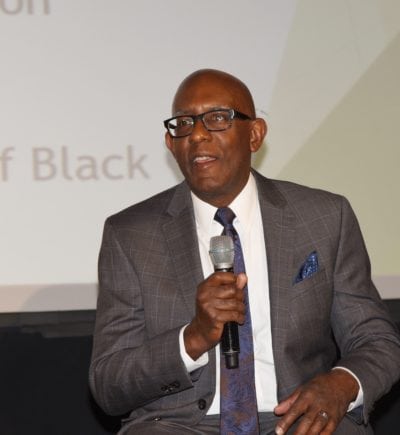Arm yourself with information so you can advocate for your health
Despite what you might believe, heart disease is the No. 1 killer in the United States. This is true for men and women. Heart disease is particularly scary for African Americans: We develop the condition at higher rates, we are less likely to receive life-saving treatments for it and we die from it at earlier ages.
But the more you know abut your heart health, the better you’ll be able to manage your condition. Paul Underwood, M.D., medical director of Boston Scientific, spoke to Black Health Matters during Healthy Churches 2020 about advances in heart disease therapies.
Black Health Matters: What are some advances in treating heart disease?
Dr. Underwood: There are multiple therapies, including medical devices. That’s what I’m most excited about—the medical devices. These include pacemakers, defibrillators, cardiac resynchronization therapy, valve replacement, stents and ventricular assist devices.
Pacemakers typically last about seven years before you’ll need the battery changed, which is done in outpatient care. They are sensitive to MRI, so we’re trying to develop versions not as sensitive. Ventricular assist devices are becoming smaller and more portable, so they’re becoming more popular. If you don’t want to have a heart transplant, you can stay on these devices forever.
Defibrillators are implanted devices that sense abnormal heartbeat. They work like the paddles doctors use in the hospital.
What might surprise us about some of these therapies?
Dr. Underwood: Women respond to devices better. They have an overall lower mortality in the first few years. But women aren’t referred to have them put in as frequently. Women are referred for treatments and clinical trials at about half the rate of men.
Why is this?
Dr. Underwood: Detection is one reason. The symptoms may not be as well known for women. If a businessman goes into the emergency room with chest pains, doctors automatically think heart attack. That’s not so for women. Possibly because of childbirth, heart pain may not be as painful for women, so they don’t get help immediately. And—I hope I don’t treat my patients this way—sometimes doctors think they’ll save money by prescribing medicines instead of expensive devices.
What else should people know about medical devices?
Dr. Underwood: To help patients adjust, talk about their concerns about the device. Give them information, which gives them a sense of control. Have them talk with other patients who have the device. Let them know that feeling stressed is normal. Encourage them to talk about how they feel. Let them know it is possible to return to normal activities—typically within a year.
There was a recent debate about giving statins to all people with a family history of heart disease. Talk to us about this.
Dr. Underwood: Statins do lower cholesterol very effectively, and for most people they are well tolerated. But in the U.S., we don’t advocate that people take aspirin for heart disease every day because of risk of ulcers. Statins are almost placed in a similar category. We know they will lower cholesterol, but what is the risk of exposing everybody to those medications?
There is still quite a bit of discussion around this. A lot of the studies have looked at whites, for whom high cholesterol is a major cause of heart disease. But high blood pressure is more a cause of heart disease for African Americans. That’s why it’s important to have more African Americans involved in the research.
What else is important for us to know about heart disease?
Dr. Underwood: Be aware of the disparity [between blacks and whites and between women and men] in diagnosis and care. Advocate for therapies and devices. Play an active role in managing your condition.






